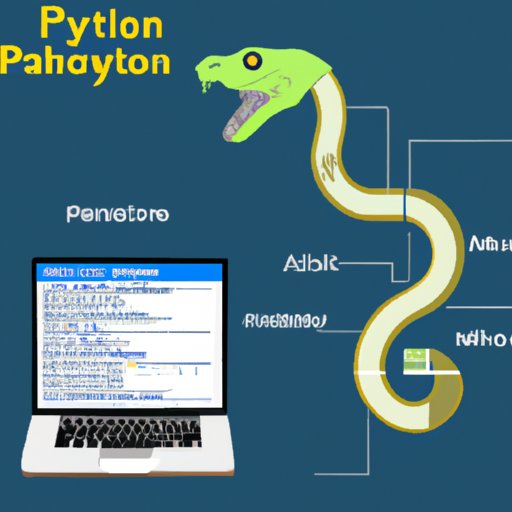
I. Introduction
Python is a general-purpose programming language that has gained immense popularity in recent years. Its simplicity, flexibility, and extensive libraries make it a top choice for beginners and advanced programmers alike. This article explores the numerous possibilities that Python offers, from building basic projects to automating tasks and analyzing data, to advanced applications such as finance and trading.
II. 5 Beginner-friendly Projects You Can Build with Python Today
Working on projects is a great way to learn and master a new language. Here are five beginner-friendly project ideas that you can build with Python today:
- Building a basic calculator
- Creating a guess-the-number game
- Developing a web scraper
- Implementing a sentiment analysis tool
- Creating a web-based chatbot
Each project comes with step-by-step instructions to help you build them, and they cover different Python concepts such as loops, conditionals, functions, and modules. By building these projects, you’ll gain skills in basic programming logic, data processing, API integration, and more, while getting comfortable with Python syntax.
III. How to Automate Your Tedious Tasks with Python
Python is also an excellent tool for automating tedious repetitive tasks in various applications. With its vast libraries, Python can be used to automate actions in applications such as spreadsheets, web browsers, and even your own desktop. Automating repetitive tasks helps save time, reduces errors, and frees up time for more meaningful work. Some examples of tasks that can be automated with Python include:
- Renaming files and folders
- Automating Excel spreadsheets
- Scraping data from the web
- Sending automated emails and messages
- Automating financial reports
By learning how to automate these tasks with Python, you’ll become more efficient and productive, leaving more time for other important tasks.
IV. Machine Learning: A Beginner’s Guide to Python Libraries
Machine learning is a field of computer science that deals with building intelligent systems capable of learning from data. Python offers various libraries that make machine learning accessible to developers of all levels. Some of the most popular Python libraries for machine learning include scikit-learn, TensorFlow, and PyTorch. These libraries make it easy to build and train models for various tasks such as image recognition, natural language processing, and more.
This section provides an introduction to some basic machine learning concepts such as supervised and unsupervised learning, and explores how to use Python libraries for machine learning.
V. Exploring Data Science with Python
Data science is an interdisciplinary field that deals with extracting insights and knowledge from data. Python is a popular language among data scientists because of its powerful libraries such as Pandas and NumPy, which make working with data more manageable. These libraries offer tools for data preprocessing, cleaning, analysis, and visualization.
In this section, we explore some of the libraries and tools that are commonly used in data science, and explain some of the basic concepts of data analysis and visualization.
VI. Web Development with Python: A Guide to Frameworks and Libraries
Python is also widely used for web development. It offers several frameworks such as Django and Flask, which provide extensive tools and libraries for developers to build complex web applications. The simplicity of Python syntax makes it easier for developers to focus on building the application’s logic rather than dealing with syntax complexity.
In this section, we explore some of the Python web development frameworks along with a guide to the tools and libraries used in building web applications.
VII. Python for Finance: Analyzing Market Data and Automating Trading
Python is widely used in the finance industry for automating trading and analyzing market data. Its simplicity and extensive libraries make it a popular tool among quants and traders. Some popular Python libraries for finance and trading include PyAlgoTrade and Quantlib, which offer tools for backtesting trading strategies, analyzing market data, and more.
In this section, we explore some of the basic financial analysis and trading concepts, along with how to use Python libraries to automate trading processes and analyze market data.
VIII. Conclusion
Python is a versatile language that can be used for various tasks, ranging from basic projects to complex applications. In this article, we explored the numerous possibilities that Python has to offer, from the beginner-friendly projects to finance and trading applications. By learning the different ways in which Python can be used, you’ll become more versatile and be able to take on different exciting projects.




